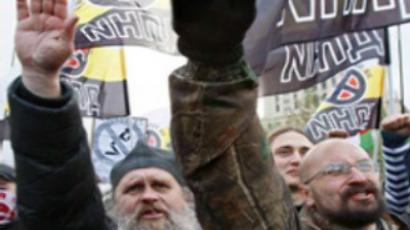Perestroika-born: Russia’s constitution marks 15th birthday
Russia is celebrating the fifteenth anniversary of the country's constitution. Following a bitter stand-off between President Boris Yeltsin and parliament it was approved by the people in a referendum on December 12, 1993.
By the autumn of 1993 Yeltsin was in deadlock with a parliament opposed to his radical reforms, so he dissolved parliament. In turn, the legislators voted to remove him from power. Yeltsin’s opponents barricaded themselves in the then parliament building, the White House. The president shelled his way out of the conflict and pushed for a referendum on a new constitution.
“The country was in chaos,” Sergey Shakhray, one of the constitution authors recalls. “In 1993 the Soviet constitution then in force was amended 400 times. We needed a new one like we needed air to breathe.”
The new constitution was voted in, giving the president wide-ranging powers and setting up a new two-chamber parliament.
However, some analysts believe that despite all the advantages of the constitution, it’s out of step with the way things are in Russia.
Aleksey Mukhin from the Centre of Political Information describes it as “a very good document, it’s been well thought through.”
“But the trouble is that our reality differs radically from the picture painted by the constitution,” he says.
One of Boris Yeltsin’s closest aides in 1994-1997, Georgy Satarov, disagrees:
“Analysts are wrong. Citizens win 80 per cent of court cases against the state: for example, if pensions are not paid. And this is all thanks to the constitution”.
At 15, it may be a teenager compared to those of some Western democracies, but it’s still one of Russia’s longest-existing constitutions. The first Tsarist constitution of 1906 didn’t survive the revolution, while Soviet Russia had four successive documents that many say were just a democratic facade for Soviet power.
State Duma deputy Pavel Krashenninikov says: “Soviet constitutions were filled with ideology. Even some of the positive things stated there didn’t necessarily exist, like the right to free housing – we all remember that it was just on paper.”
Recently President Medvedev proposed amending the constitution, increasing term limits for both Russia’s president and parliament. The idea was backed by the legislators and opinion polls.













